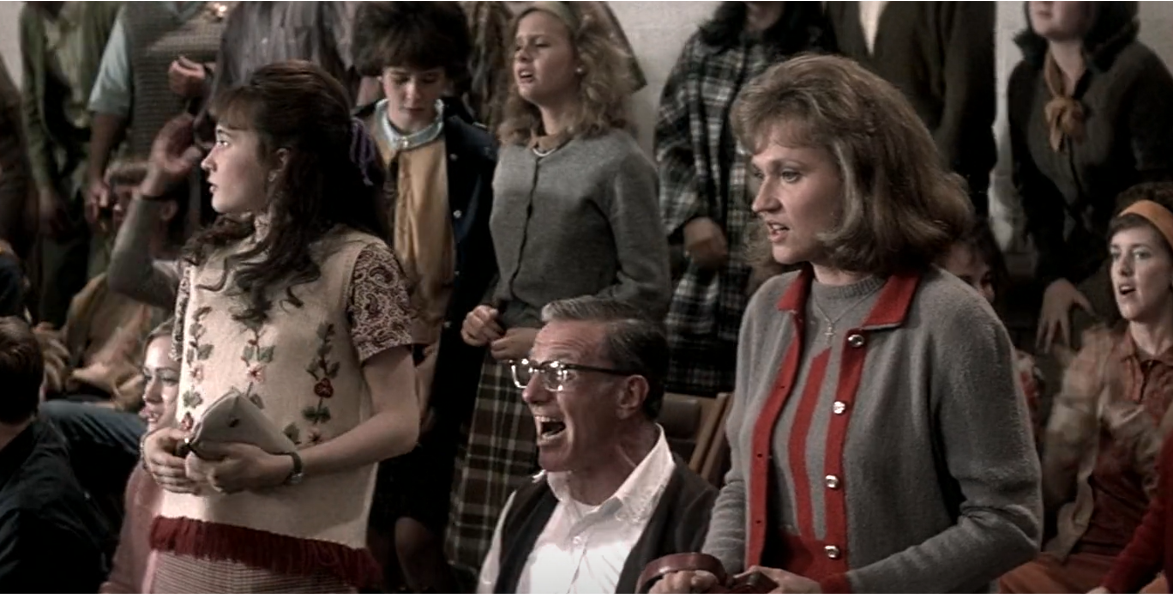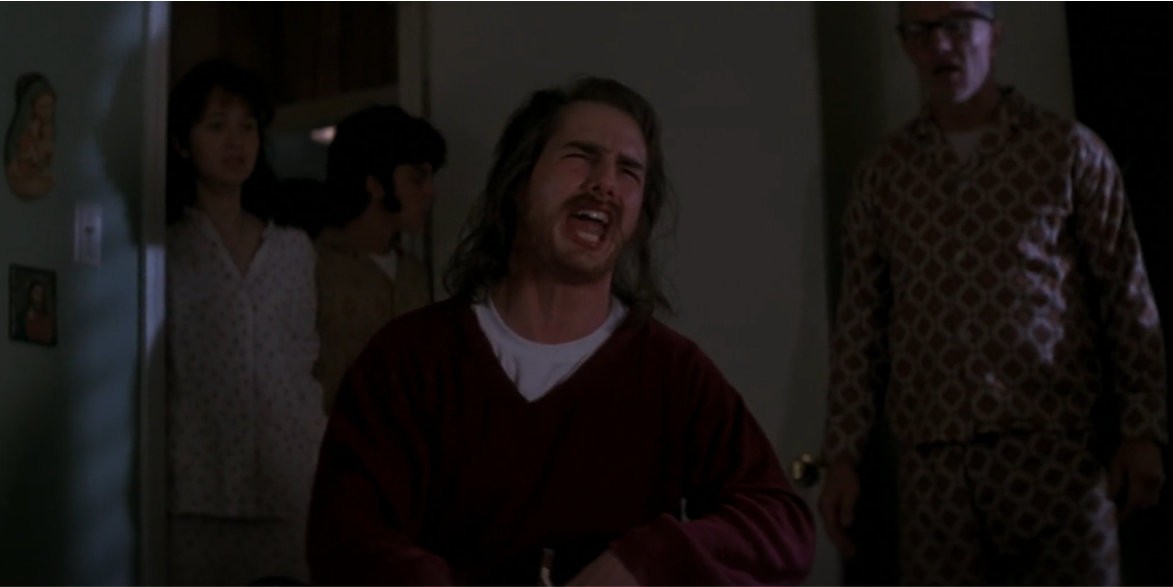The story of ‘Born on the Fourth of July,’ brought to screen by Oliver Stone, from Ron Kovic‘s book of the same name, follows the war veteran’s journey into becoming a champion of peace and war resistance. However, before all of this, Ron had been pro-war, mesmerized by the speeches of Kennedy and his local recruits and by the veterans parades he witnessed every Independence Day — also his birthday. At the center of the young boy’s fascination with the army were his parents, Eli and Patricia Kovic, who had a foundational impact on his psychology following their son’s enlistment into the Marines and his eventual return as a person with paraplegia. The family dynamics came to the forefront, with essential questions being raised about the truth of what his parents had learned and, in turn, taught him. SPOILERS AHEAD.
Eli and Patricia Kovic Were Devout Catholic Patriots
Eli Thomas Kovic met Patricia Ann Lamb while the two were serving in the Navy during World War II, having voluntarily enlisted shortly after the attack on Pearl Harbour. Thus, from the get-go, patriotism stood out as one of their binding factors, and the couple made sure to inculcate it into their six children. Ron was the second oldest and the apple of their eye. The family took great pride in his birthdate, which aligned with the day of America’s independence. The couple had grown up during the Great Depression and had seen their fair share of economic troubles. While Patricia was a stay-at-home mother, Eli was a checker at the local supermarket, reportedly working twelve hours a day to give his family the opportunity to achieve middle-class status. During his teenage years, Ron would also do a part-time job at the same store, but sought more from life.

As mentioned by Jim Kovic, Eli and Patricia’s son, in his blog, she published a book titled “Momma,” about the life of her mother-in-law, Anna Delivuk, showing how the family fostered a history of creative expression, which Ron would go on to inherit. In his memoirs, Ron fondly recalls sitting around the breakfast table reading the comics as his father whipped up a delicious breakfast of eggs and hash browns, a memory that suggests that they had an enjoyable family life. The Kovics were strongly religious and had provided all their children with an extensive catholic education. Upon announcing his decision to enlist in the Marine Corps, his parents approved enthusiastically, with his father personally dropping him off at the station, unaware of his cruel fate ahead.
The Kovic Family Suffered Through Many Internal Issues
Life changed drastically for Ron Kovic following his injury and subsequent paralysis. Unlike in the film, where Ron is forced to suffer through horrible conditions in the New York Veterans Administration Hospital, his real-life counterpart was frequently visited by his family. His mother used to bring him a copy of ‘Sunrise at Campobello,’ which described former president Franklin Roosevelt’s own battle with polio and his subsequent rise in politics despite his disability. However, Ron chose to hide his true feelings and living conditions from his family, making it slightly easier for them to cope with their son’s condition. Upon returning home, Ron found that his father had prepared a ramp for him and that his convenience was well-considered, as he had returned as a war hero.

However, tensions soon began to simmer within the house, ultimately exploding with Ron’s confrontation with his parents. This scene is also captured in the film and targets the resentment he harbors towards his mother’s teachings, both catholic and patriotic. In both reality and its cinematic rendition, he finally came clean about his complete disillusionment with the war and the despair he feels for losing control of his body, denying him mobility, normalcy, and sexual pleasure. He loudly proclaimed that there was no God and that he had wasted his life away for no reason. Resultantly, his family sent him to Mexico, to a remote community called Las Fuentes in Guadalajara, Mexico, to communicate with fellow veterans, further showcasing their complicated family dynamics.
Ron Kovic Reconciled With His Parents Prior to Their Passing
Upon returning from Mexico, Ron began a new chapter in his life as an anti-war activist. While he doesn’t detail the reaction of his parents in his memoirs, later pictures of them leading a happy life together suggest that they made up their differences. This is reflected further by the making of his autobiography’s film adaptation, during which Cruise reportedly asked him to re-enact his moment of catharsis with his mother. Ron would describe it as an uncomfortable process, leading him to promptly flee the house after the session. Furthermore, he described meeting his parents toward the end of the film’s production as a turning point for him. He felt that until that year, in the course of making the movie, he had not understood how they, too, had suffered, thus bridging some significant gaps.

Eli and Patricia continued to play an important role in his life, even coming with him to the 1990 Academy Awards Ceremony, where his work on the script was nominated for an Oscar. While their relationship had seen its share of turbulence, the family stuck together, supporting each other through the lowest of times, and had a long, happy life together. Not much is known about Ron’s parents in the decades after the movie’s release, indicating a quiet lifestyle. Eli Kovic passed away in his home in Yuma, Arizona, on May 1, 1999, at the age of 78 after a hard battle with prostate cancer. His wife of over fifty years, Patricia Ann Kovic, breathed her last on June 30, 2006, at 83 years old, in the Fallbrook neighborhood of Elk Grove in Sacramento, California.
Read More: Is Charlie Based on Ron Kovic’s Real Friend?


